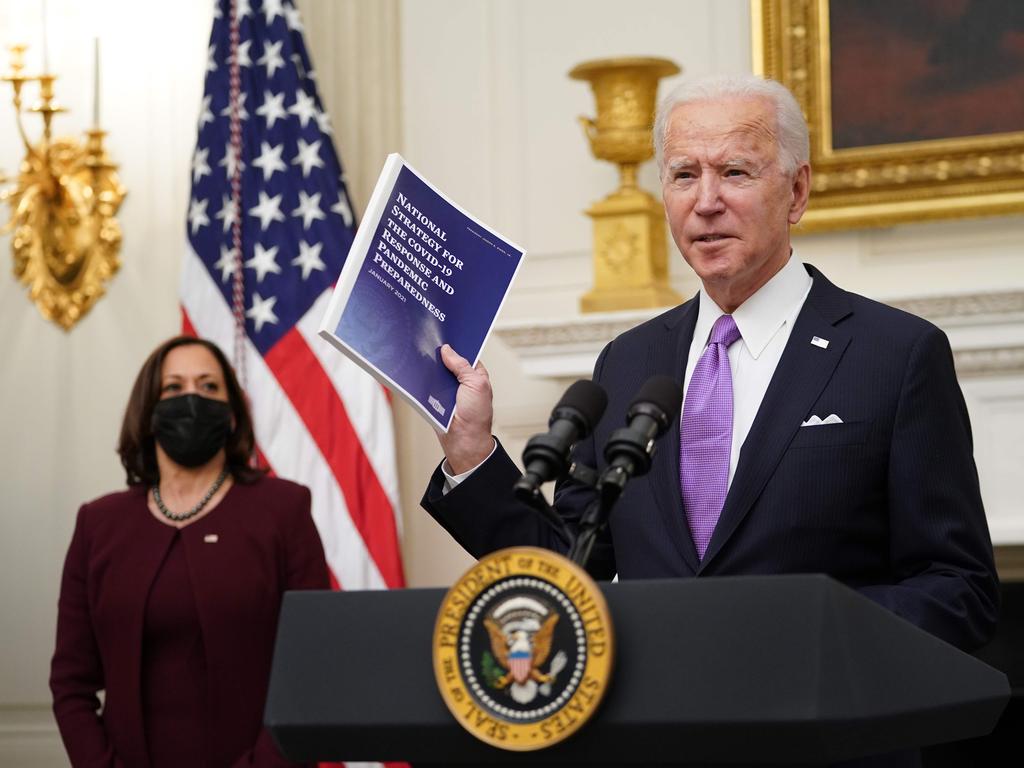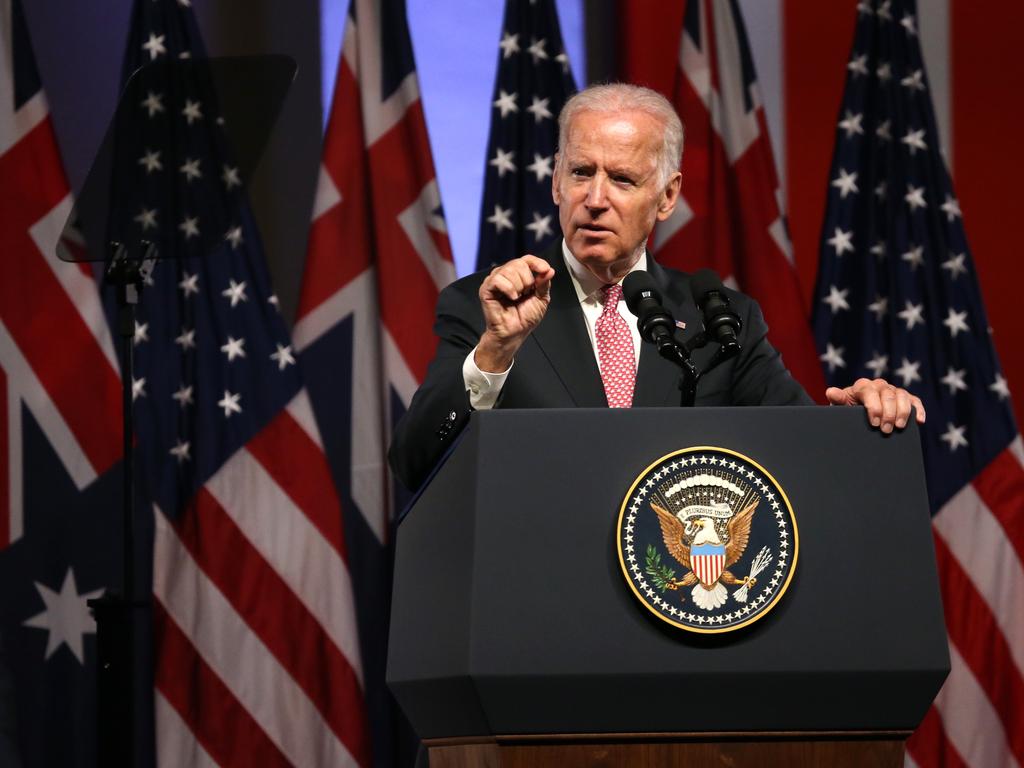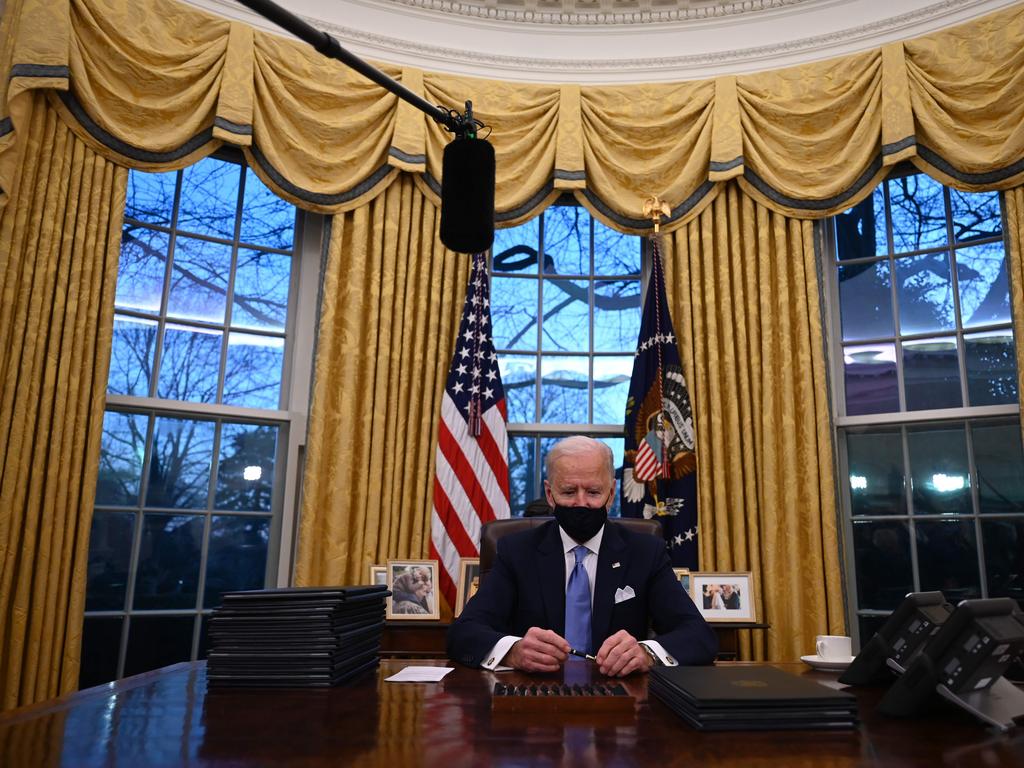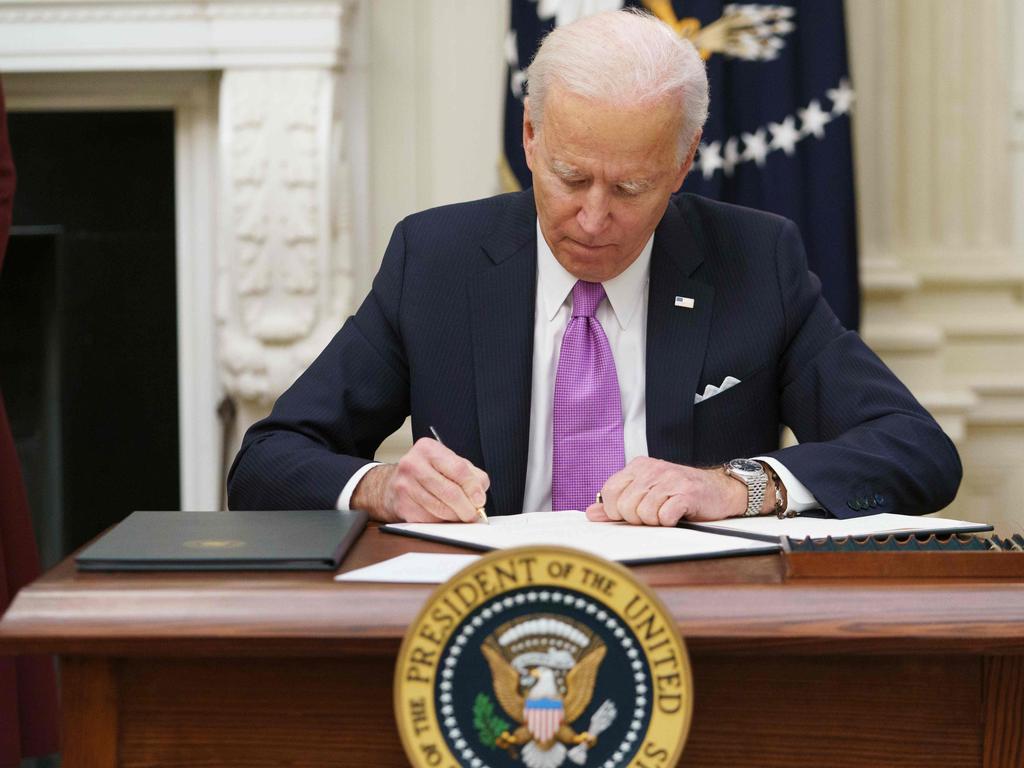Joe Biden’s bipartisanship pledge faces early test


The choices that Biden makes in negotiating the passage of his proposed $US1.9 trillion relief package go beyond the importance of one bill. They could set the tone of his presidency.
Some Republicans have been unsettled by the speed at which Biden is moving to unwind Donald Trump’s legacy through his rapid-fire signing of a raft of executive orders on everything from immigration, to climate change to the economy.
Now Biden faces a difficult choice in trying to win Republican support for his proposed $1.9 trillion relief package, which needs Congressional approval.
Some Republican have baulked at the price tag and also at some of its contents, such as a $15 minimum wage, which they see as unrelated to the pandemic and an excuse for liberal Democrats to smuggle through their own agenda under the guise of a relief package.
The White House claims Biden will start negotiating with Republicans in the coming days to work out what sort of package is doable.
“He’s very eager to be closely involved, roll up the sleeves ... and make the calls himself,” says White House press secretary Jen Psaki.
But the Republican opposition to the relief bill, as it currently stands, means that any negotiated bipartisan outcome is likely to result in a much smaller relief package than Democrats want.
The left of the party is pressuring Biden to not waste much time on negotiations but rather to use their congressional majority to ram the full bill through as it is.
Democratic socialist Bernie Sanders on Monday (AEDT) said the Democrats should use a special legislative process known as ‘budget reconciliation’ which would allow them to pass the relief bill in the Democrat-controlled Senate with a 51 majority vote, rather than the 60 votes usually needed to pass legislation.

Sanders says if Republicans don’t accept the relief package largely as is, then the Democrats should pass it anyway because it is “desperately needed by working families in this country right now”.
But such a partisan move would undermine Biden’s oft repeated claims that he wants to bring a new era of bipartisanship to Washington.
For Biden to use his narrow majority to ride roughshod over Republicans in his first large legislative package would make it much harder to win their approval on other large legislation he wants to get through including the large immigration reform bill that he sent to Congress on his first day in office.
But there is not much time to waste. Some aspects of the relief bill, such as the coronavirus measures to increase vaccine rollout, testing and treatments, are critically important to roll out quickly as the virus rages across the country.
On this issue, Biden finds himself caught between the right and the left, trying to negotiate a perilous path between Republicans and the liberal wing of his own party.
The way that Biden handles this difficult issue will say much about his ability to make good on his promise to strike deals with his opponents rather than fall back into the entrenched partisan politics that has defined Washington for so long.







Joe Biden is facing tough decisions in his first full week as president about how far he is willing to go to co-operate with Republicans to pass his promised agenda.